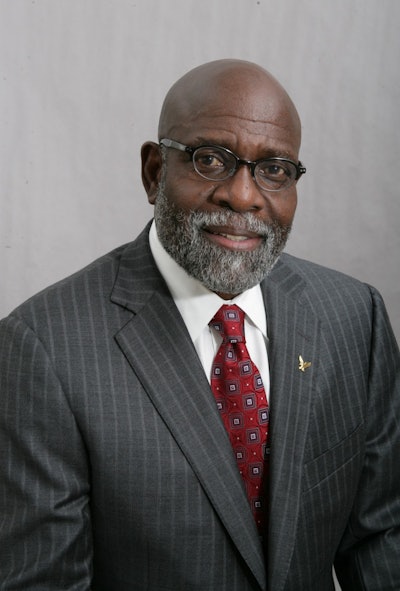Like many mature and retired citizens, a year ago I was making plans for using some of the funds I had squirreled away for visiting places on my bucket list, and for escaping the predictably cold winters in the Midwest where I live. Little did I know that my plans would not only be put on hold, but that they might be completely abandoned, due to the devastating effects of the coronavirus sweeping the world. While listening to health experts, several things quickly became clear.
 Dr. Charlie Nelms
Dr. Charlie NelmsFirst, researchers and healthcare providers know very little about the effects of COVID-19. Second, there are no known effective medical treatments for the virus. Third, no national U.S. strategy exists for fighting the virus. Fourth, the virus has a disparate impact on Black Americans relative to both infection and death rates. According to statistics from the Centers for Disease Control (CDC), Blacks are significantly more likely to be infected, to be hospitalized, and to die from COVID-19. Blacks comprise 13% of the U.S. population, but make up 23% of all COVID-19 fatalities. Even with the challenges of incomplete data, a recent study by the Brookings Institute indicates that race gaps are even bigger than they appear. Among those aged 45 to 54 years, Blacks have a death rate six times higher than whites.
For the past six months I have focused my full attention on remaining healthy physically, emotionally, and spiritually. I have broken my lifelong adult habit of visiting the gym every day, while limiting my professional consulting practice to what seems like endless Zoom meetings, conference calls, Skype, and FaceTime interactions.
Regrettably, I recently found it necessary to attend virtual funeral services for one of my biological brothers who succumbed to COVID-19, and to entirely forego attending memorial services for a longtime friend who likewise was a victim. Despite all that is known, as well as unknown about COVID, I have adopted a comprehensive personal strategy that allows me to successfully navigate the uneven terrain revealed by the virus. I offer these strategies with the hope that all mature and retired adults will be encouraged to live their lives as robustly and unafraid as possible.
1. Assume an attitude of gratitude for all dimensions of life and for the energy and the resolve to tackle those issues that would diminish or defeat us if left unattended. For me, every day is a good day, and it is my responsibility to make it great day. Doing so begins with an unabashed attitude of gratitude.
2. Remain physically active by engaging in activities that boost your blood flow while increasing your metabolism, without overburdening your heart rate. For me, this means walking 60 to 90 minutes each and every day, at variable rates and elevations. Based on my observations, a sedentary lifestyle is the first step toward decline. As with any form of exercise, seniors should consult their healthcare provider before engaging in strenuous activity.
3. Remain intellectually engaged: Use it or Lose it! I find reading and writing, and listening to thought-provoking podcasts, interviews, and news programs to be effective ways of nurturing and challenging my curiosity. The day following my second retirement, I commenced posting on Twitter and LinkedIn and blogging on a regular basis. These activities have proven to be quite beneficial in this era of COVID-19.
4. Remain spiritually and religiously engaged through reflection, meditation, and worship.
5. Increase your participation in volunteer activities that align with your interests, expertise, and passion.
6. Remain connected with your family and friends, and those who love you for who you are and not for what you do, or what you did professionally. Authentic relationships are priceless. They can sustain us during periods of challenge and uncertainty, whether related to COVID-19 or otherwise.
For me, it is a matter of maintaining an appropriate balance between the foregoing six factors. We can help each other stay healthy by tending to our own health, in body and spirit. Ultimately, everyone must decide how to best maintain a healthy sense of wholeness and optimism, in an era when everything seems uncertain at best, especially health, safety—and life itself.
Dr. Charlie Nelms is the chancellor emeritus at North Carolina Central University.















